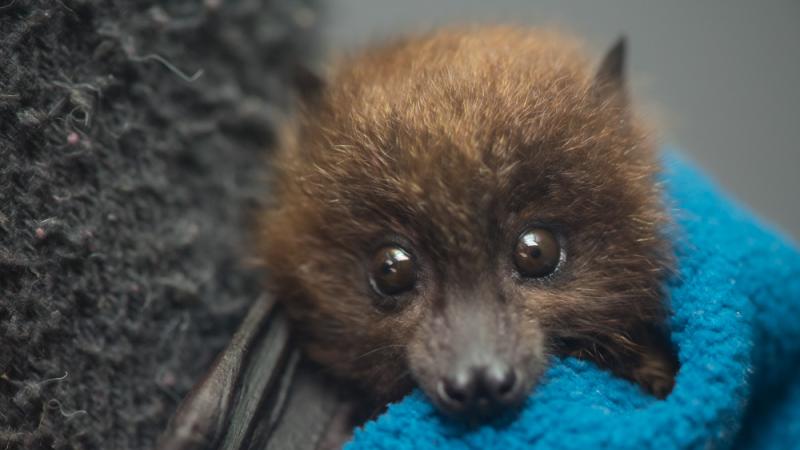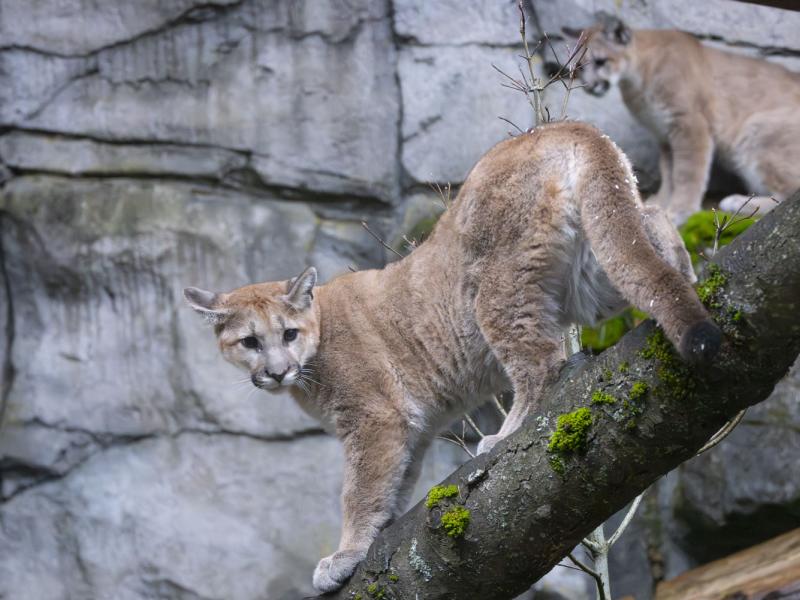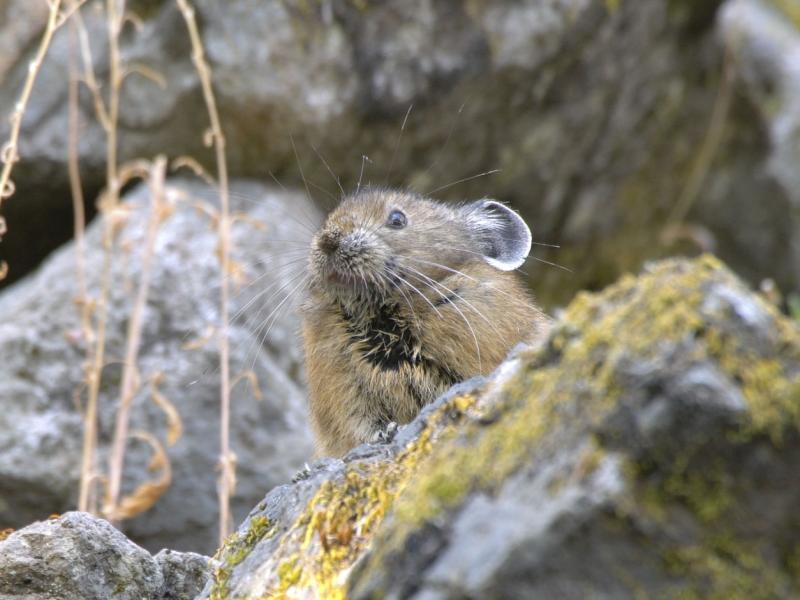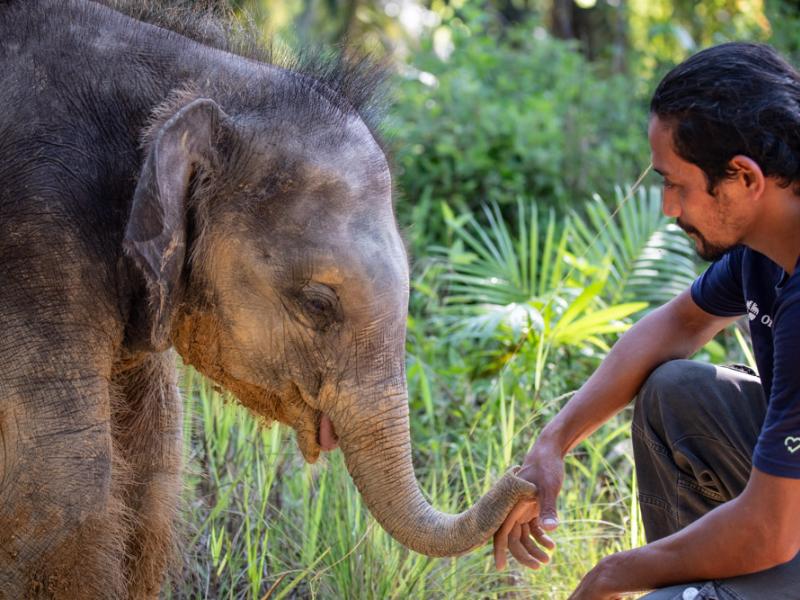Bat baby boom: 3 rare 'Rod' pups born at zoo

Fuzzy baby bats represent hope for endangered species
Three Rodrigues flying fox pups are being raised at the Oregon Zoo this month, adding to the growing population of a bat species that was once nearly extinct.
Called the “flying fox” thanks to an expressive furry face and pointy ears, this endangered species is native only to Rodrigues, a tiny island in the Indian Ocean about 900 miles east of Madagascar. The bat plays an important ecological role on the island, where few other pollinators or seed dispersers exist.
Care staff members say the new pups at the zoo are a testament to one of the most inspiring conservation stories in history: living proof of the impact people can have — both positive and negative — on wildlife and species conservation.
“Every bat pup is important, especially for an endangered species like this one,” said Kelly Gomez, who oversees the zoo's bat area. “Rodrigues flying foxes nearly went extinct a few decades ago. That they’re still here shows that people can make a difference if we work together for wildlife.”
By the 1970s, much of the bats' forest habitat had been cleared, and the species was perilously close to disappearing. After a cyclone hit the island in 1979, fewer than 100 individuals remained, making the Rodrigues flying fox the rarest bat in the world.
The bats found a champion in English naturalist Gerald Durrell, who translocated some survivors to form a breeding colony aimed at repopulating the species. Today, the Rodrigues flying fox population has increased to around 20,000 thanks to more than four decades of conservation activity.
The Oregon Zoo began housing "Rods" — as they're often called in zoological circles — in 1994, and has raised more than 50 pups since then, periodically sending bats to other zoos as part of the Association of Zoos and Aquariums' Species Survival Plan for Rodrigues flying foxes — a cooperative program that helps maintain genetically diverse, self-sustaining populations to guarantee the long-term future of these animals.
“Helping to sustain a population in zoos is especially important for an island species like this one,” Gomez said. "With so few left and such a limited geographic range, a severe weather event on their island could essentially wipe them out."
Born with fully formed claws, Rodrigues flying fox pups cling to their mothers’ abdomens until they can fly on their own. Visitors to the zoo can catch a glimpse of the new arrivals in the bat cave, located in the Africa Rainforest area.
More News

Rescued cougar cubs are venturing out
. A pair of orphaned cougar cubs, rescued and brought to the zoo by Washington Department of Fish and Wildlife staff in November, have begun exploring their outdoor habitat.April 17, 2025

Zoo seeks pika watchers for summer season
The Oregon Zoo is recruiting volunteers for Cascades Pika Watch.April 15, 2025

Zoo convenes action for imperiled elephants
Sabah government representatives joined conservation NGOs, local communities, palm oil producers, and tourism operators this week in the fight to save the world’s smallest elephants from extinction.April 11, 2025

